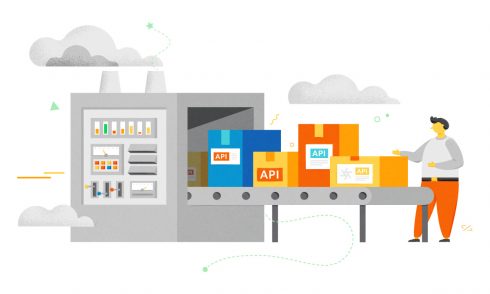
APIs are not new to software development, but Google believes they are becoming more important. According to the company, as the API space continues to evolve, enterprises are headed towards an “APIfication” future — one where APIs will become an essential part of how their software operates.
“APIs have come a long way from the arcane geek-speak of software interfaces popularized by Win32 APIs (still among the most commonly searched API phrases). Today, APIs represent interfaces between businesses and large swaths of internal enterprise services and business units. APIs not only connect software to software but also help to create entire commercial ecosystems, and so have become integral parts of how enterprises conduct business,” Anant Jhingran, CTO of Apigee (a Google company), and Ed Anuff, director of product management for Google Cloud Platform, wrote in a post.
According to Jhingran and Anuff, APIs will go through a number of different twists and turns are enterprises realize the true impact of APIs. They predict:
-
- API standards: There will be more focus on creating API standards and providing a universal approach to calling APIs for various tasks such as making a payment, checking a balance and ordering a ticket. “As APIs rapidly become the ‘contracts’ between software systems within and outside of an enterprise, it seems natural that these contracts should get standardized,” Jhingran and Anuff wrote.
- GraphQL: The open-source query language for APIs has started to become very popular over the last year, with some developers favoring it over the REST API. As the technology will solve changes around delivering reusable services and it is expected that GraphQL adoption will only continue to flourish.
- gRPC: gRPC adoption will continue to grow especially within the Kubernetes and microservices ecosystem. “Most APIs intended for third-party developers will continue to be REST-based, but API providers will start to offer gRPC as an option, particularly for high-throughput and low-latency scenarios,” Jhingran and Anuff wrote.
- Machine and AI-driven API traffic: Programmatic API calls generated by machine intelligence and algorithms are getting more popular due to the rise of voice applications, IoT, home automation and AI going mainstream.
- API-driven ecosystems: As enterprises start to realize the importance of developers, Jhingran and Anuff predicts developer offers will become more API-centric; REST APIs will be sepcificed by OpenAPI; and API startups will proliferate.
- Microservices and APIs: 2019 will be the year Envoy, an open-source edge and service proxy, will become the go to technology for APIs. In addition, microservices will be looked at as modernized SOA.
- Security: Jhingran and Anuff says we can expect breached of APIs for crypto mining and breaches because of poor API security.
“As APIs become mainstream, they offer an unprecedented opportunity to drive new business opportunities through ecosystems and new ways of rebooting enterprise architectures via microservices, “Jhingran and Anuff wrote.






